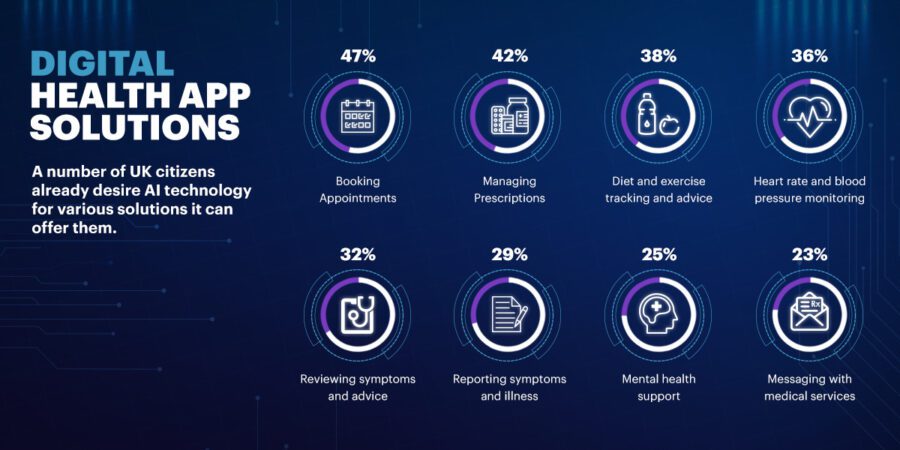The Telegraph covered a robotic revolution in the healthcare sector and predicted an increase in robotic systems in hospitals in the coming decade. Insights from 2016 indicate that about 86% of healthcare provider organizations and technology vendors to healthcare are using artificial intelligence technology. Institutions across the globe are adopting to automation, machine learning, and artificial intelligence (AI) including doctors, hospitals, insurance companies, and industries with ties to healthcare.
Here are a few of the many ways AI and data analytics are paving the road to better healthcare.
1. Mining Medical Records and Devising Treatment Plans
In a day, a radiologist attends to almost 200 patients and 3000 medical images. Today, every person who visits a medical practitioner has their medical record created. The number of records will only grow in the coming years. Analysing this data and determining a treatment plan consumes valuable time. AI can help reduce the workload and expedite the medical process with the help of something called as a Patient Data Mining.
MIT’s Computer Science and Artificial Intelligence Laboratory (CSAIL) created ‘ICU Intervene’, a machine-learning approach that collects a significant amount of ICU data ranging from medical to demographic details. Through this data, the AI can determine the types of treatment the patients need and quicken the diagnosis to save critical time.
“Data gathered and presented by AI algorithms will enable healthcare providers and doctors to see patients’ health risks and take more precise, early action to prevent, lessen the impact of or forestall disease progression. These interventions will curb healthcare costs and lead to improved patient health outcomes,” said Derek Gordon, COO of Lumiat, to Cygnismedia.
2. Assisting in Repetitive Jobs and Future Prediction
Routine jobs such as X-rays, CT scans, and data entry can be offloaded to an AI assistant.
In cardiology and radiology, not only does analysis and compilation of data consume crucial time but is also prone to trial and error. AI can prove to be more accurate and helpful in such scenarios. It can read CT scans and medical reports to provide a diagnosis of similar images stored in the database.
In fact, a Chicago start-up, Careskore uses a cloud-based predictive analytics platform. Using Zeus algorithm in real time, Careskore predicts the likeliness of an individual’s hospitalisation after studying a range of data which includes a combination of behavioural, demographic and clinical data.
3. Blending Physical and Virtual Consultations
Chat bots used in the healthcare sector interact with the patients through telephone, text, or website to schedule appointments and follow-ups, billing, processing 24×7 urgent requests for customer care, and so on. They help in reducing the overall administrative cost of the hospital.
Medical Virtual Assistants (MVA) collect and compile a patient’s medical and demographic details. M-health apps help people track their health and notify patients about upcoming appointments. They are also programmed to answer the basic health-related or medical queries of a patient.
4. Medication Management
AI-enabled systems can track patients’ data and suggest treatments based on analysis. An Israeli start-up developed AI algorithms closely accurate or even more precise than humans when it comes to the early detection of conditions such as coronary aneurysms, brain bleeds, malignant tissue in breast mammography, and osteoporosis. Such assistance can significantly augment the medical procedure.
IBM Watson launched a unique programme for oncologists where AI will study all the structured and unstructured data of a patient, and suggest treatment pathways to the doctor.
5. Finding the right talent in Healthcare
As the healthcare industry grows, there is always a need for qualified healthcare professionals. Often, hiring managers receive hundreds of resumes per open role. When shortlisting candidates for interviews, they use various data points such as filtering out candidates with too many or too few years of experience. Beyond this level of filtering, many companies are using AI chatbot software for recruitment. For example, Accenture uses Min, an AI virtual recruiter to hire data scientists in Singapore. This helps recruiters save time, improve efficiency, and make fair hiring decisions. For candidates, the chatbot engages, interviews, and shortlists them 24/7.
6. Helping People Make Better Health Choices
Based on the demographic, behavioural, and medical data of people, AI-enabled systems can predict health risks in advance and warn people accordingly. Six months after El Camino Hospital in Silicon Valley applied artificial intelligence, the rate of patients with fatal diseases fell by a 39 percent.
As per OECD estimates and figures from The United States Institute of Medicine, the top 15 countries by healthcare expenditure waste an average of between $1,100 and $1,700 per person annually. Health App Solutions offered by AI helps healthcare systems avoid needless hospitalisations.
Not only does AI help Doctors by advising treatment solutions, but also enables people to lead a better and healthier lifestyle.
References
http://news.mit.edu/2017/using-machine-learning-improve-patient-care-0821
https://www.cygnismedia.com/blog/how-artificial-intelligence-transforming-modern-healthcare/
https://sanvada.com/2017/12/15/how-companies-are-using-ai-in-the-field-of-patient-data-mining/
http://novatiosolutions.com/10-common-applications-artificial-intelligence-healthcare/
https://www.gavstech.com/how-healthcare-virtual-assistants-can-enhance-patient-engagement-2/
http://medicalfuturist.com/chatbots-health-assistants/
http://medicalfuturist.com/artificial-intelligence-will-redesign-healthcare/
https://www.weforum.org/agenda/2018/05/four-ways-ai-is-bringing-down-the-cost-of-healthcare/

